Charlton Heston, renowned for his powerful performances in iconic films such as *Ben-Hur*, *The Ten Commandments*, and *Planet of the Apes*, was much more than a Hollywood star. He was also a dedicated serviceman who proudly served his country during World War II. While many remember Heston for his towering presence on screen, his commitment to his nation and the principles he stood for extended far beyond his film career.
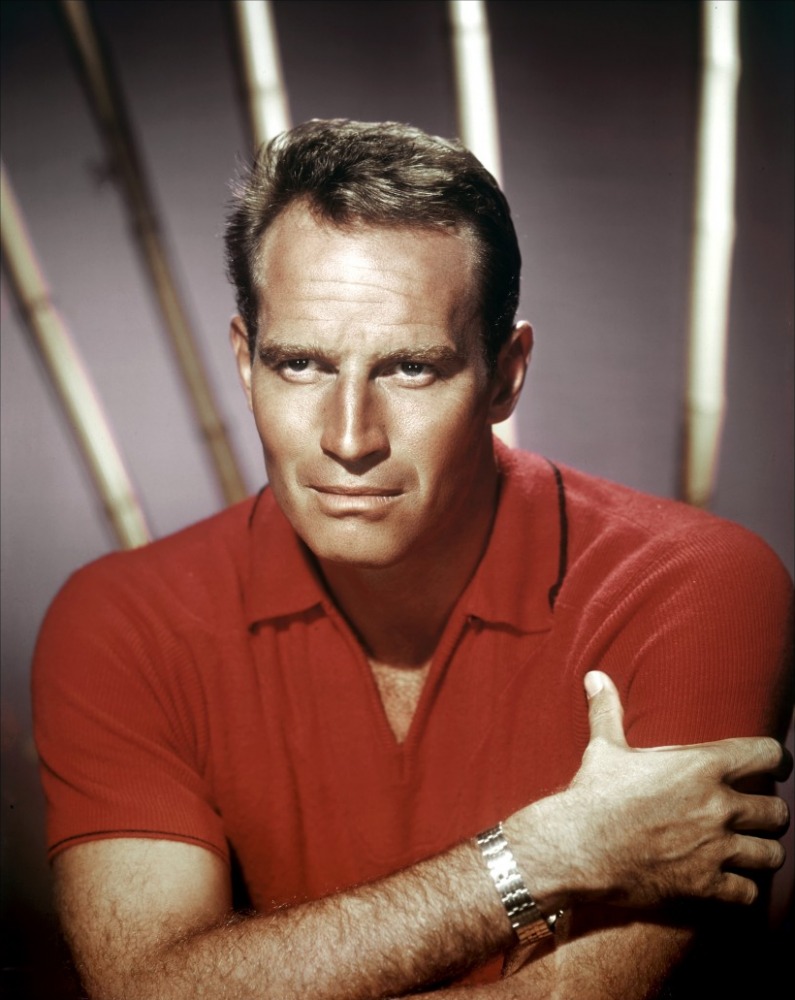
Charlton Heston’s Early Life and Enlistment
Born on October 4, 1923, in Evanston, Illinois, Charlton Heston (born John Charles Carter) grew up during a time when the world was on the brink of monumental change. Heston spent his youth in a backwoods town in Michigan, a shy boy with few friends. He attended a one-room school with a pump in front. There were 13 pupils, three were his cousins, and he was the only student in his grade level.
The actor’s parents divorced in 1933, and his mother moved the future actor and his siblings back to Illinois, marrying a man named Chester Heston. Thus, ‘Charlton Heston’ was born — although his lifelong nickname was ‘Chuck’.
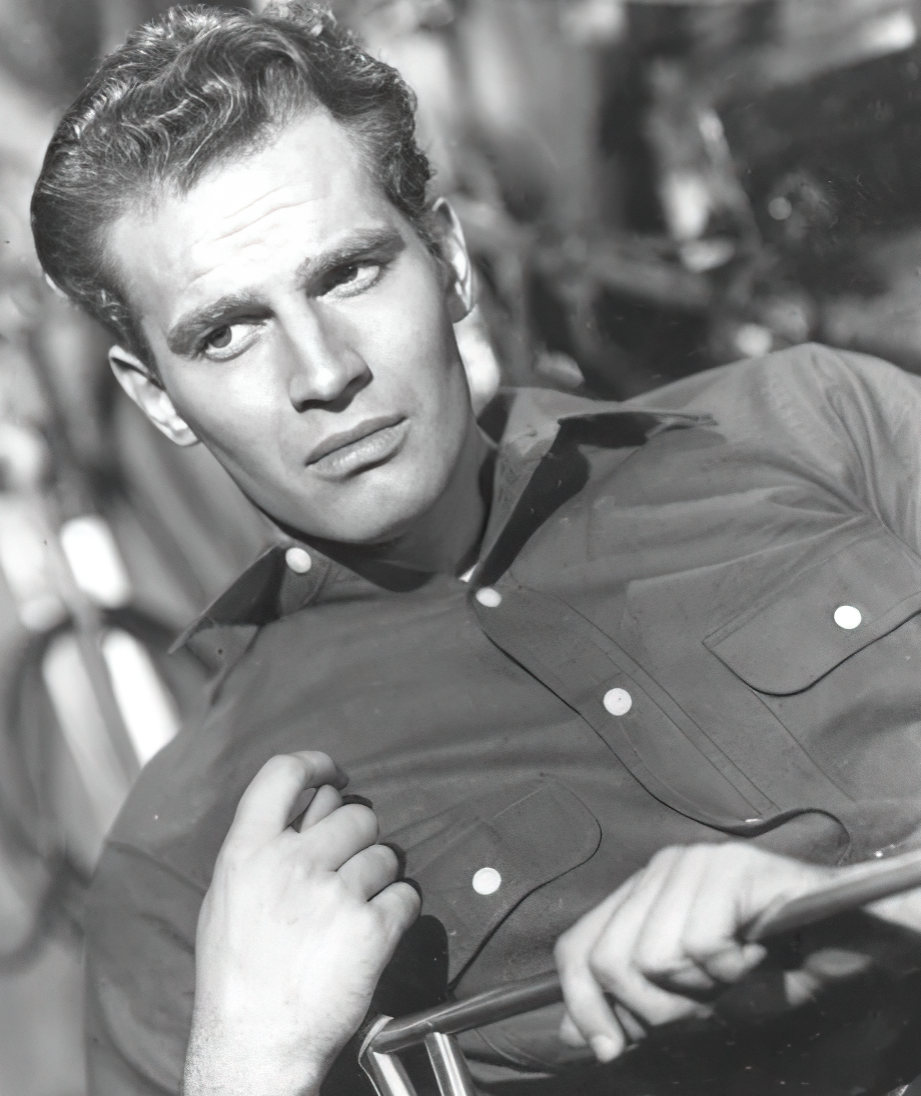
As a young man, Heston developed a passion for acting. “I can’t remember a time when I didn’t want to be an actor,” said Charlton Heston in an interview about his early life. Eventually, the family moved to the Chicago suburbs, where he played football in high school and got a taste of his future life in amateur theatricals. He then attended Northwestern University on a scholarship. At Northwestern, he acted in University theater productions and made his movie debut in classmate David Bradley’s Peer Gynt in 1942.
In 1943, at the age of 20, Heston enlisted in the United States Army Air Forces (USAAF), determined to contribute to the war effort. Like many of his generation, Heston was deeply moved by a sense of duty and responsibility, particularly after the Japanese bombing of Pearl Harbor on December 7, 1941. The attack had a profound impact on him, and he knew that he wanted to play a role in securing freedom and democracy.
Charlton Heston Serving in the Army Air Forces
Charlton Heston’s military service began with his enlistment in the USAAF, where he trained as a radio operator and aerial gunner. Heston’s service took him to the Pacific Theater, where he was assigned to the 77th Bombardment Squadron of the 11th Bombardment Group, stationed in the Aleutian Islands.
In 1942, Japanese forces invaded the islands of Kiska and Attu, part of the Aleutian chain off the coast of Alaska. On the 3rd and 4th of June 1942, a Japanese carrier strike force attacked the U.S. military bases at Dutch Harbor, inflicting minor physical, but considerable psychological damage. This marked the only time during World War II that enemy forces occupied U.S. soil. The harsh weather conditions and rugged terrain made the campaign particularly challenging for the Allied forces. The American military, aware of the strategic importance of the Aleutians in defending the Pacific Northwest, launched operations to reclaim the islands. It took over two years of intense fighting, under extreme conditions, to drive out the Japanese forces.
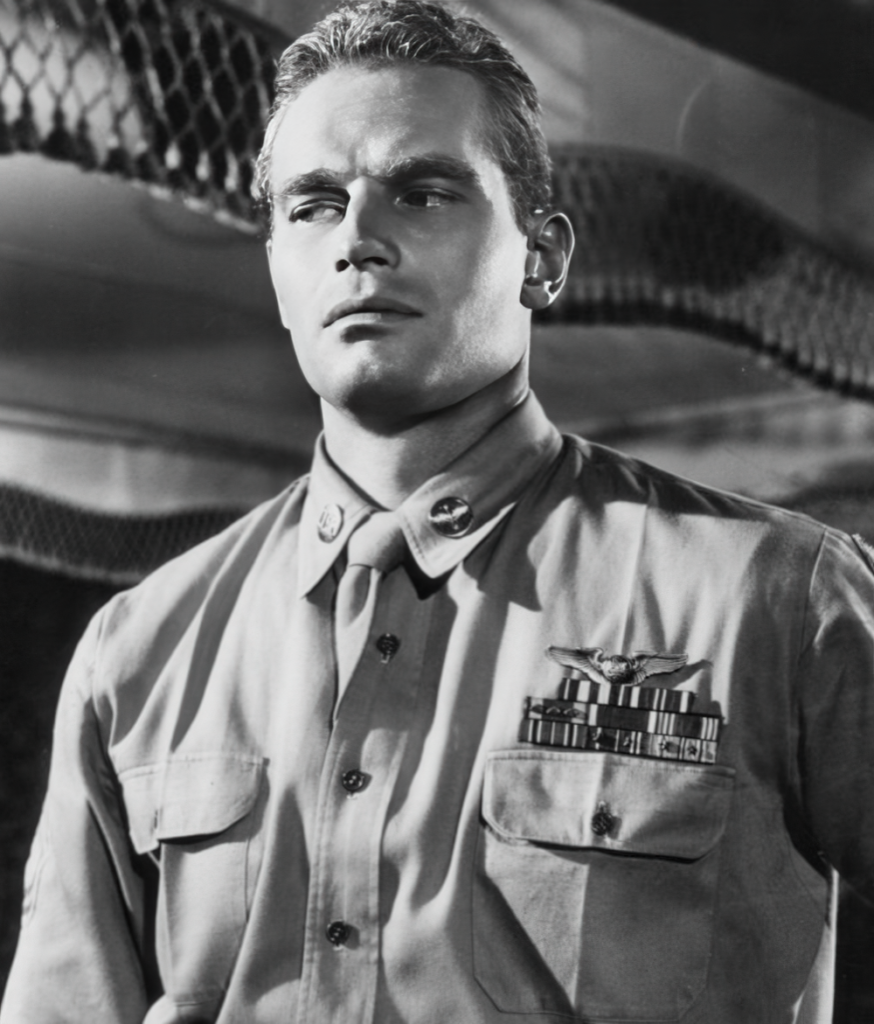
As a radio operator and aerial gunner, Heston was responsible for maintaining communication between the aircraft and ground stations, as well as operating the aircraft’s defensive armament. This dual role required a unique blend of technical skill and bravery, as aerial gunners were often tasked with defending their aircraft against enemy fighters during bombing missions.
Late in 1944, Charlton Heston and his fellow servicemen at their base received grim news that the upcoming invasion of Japan could cost at least half a million American lives. Heston believed he would be part of this massive assault, known as Operation Coronet. However, after an army plane crashed on the base, Heston was injured when he slipped on ice and was run over by an ambulance. Despite being confined to a wheelchair and assigned to a control tower, he was determined to join the invasion, convinced his injury shouldn’t hold him back.
In August 1945, the United States abruptly ended the war in the Pacific by dropping atomic bombs on Hiroshima and Nagasaki. Charlton Heston, like many American soldiers, celebrated the decision, believing it saved countless lives, including his own. Reflecting on the situation later, Heston acknowledged that had the invasion occurred, he might not have survived.
A few weeks after Japan’s official surrender, Charlton Heston, still recovering from his injury, was transferred to Great Falls, Montana, where he received a formal discharge from the military. By March 1946, at the age of 23, Heston had returned to civilian life.
Charlton Heston: Post-War Life and Hollywood Stardom
After the war, Charlton Heston returned to the United States, where he pursued his passion for acting. He returned to Northwestern University on the G.I. Bill, further honing his craft before moving to New York City to launch his acting career. At Northwestern, he met and married a fellow drama student, Lydia Clarke, his wife of more than 60 years. Heston’s military service had a lasting impact on him, shaping his worldview and influencing the roles he chose to portray on screen.
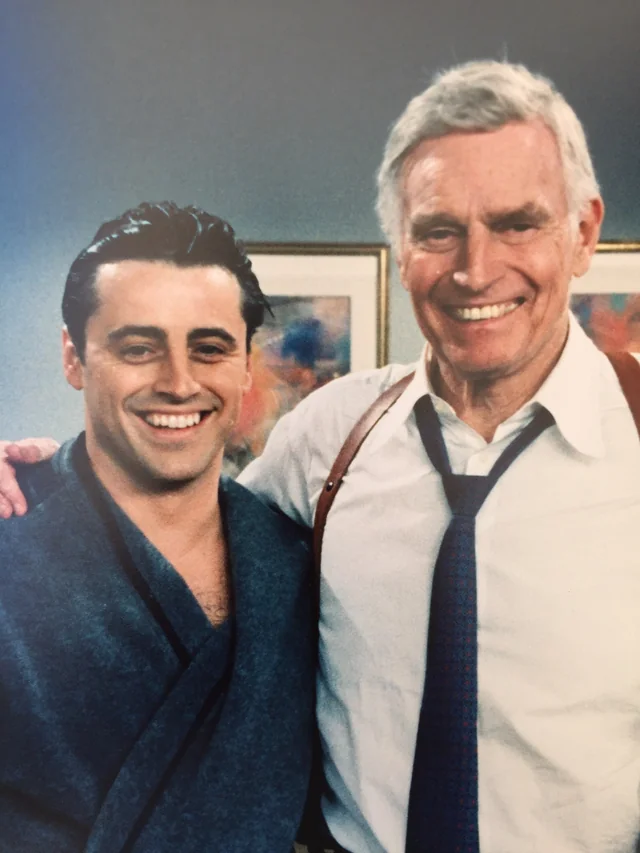
Shortly after a chance encounter at Paramount Pictures, Charlton Heston caught the attention of legendary director Cecil B. DeMille, who was impressed by his looks and confidence. DeMille cast Heston as a circus manager in The Greatest Show on Earth, which became the most popular film of the year, won the Best Picture Oscar in 1953, and launched Heston into stardom. In the years that followed, Heston quickly rose to prominence in Hollywood, becoming known for his portrayals of heroic and larger-than-life characters. His performances in films such as Ben-Hur (1959), for which he won an Academy Award for Best Actor, and The Ten Commandments (1956) cemented his status as a leading man in the film industry.
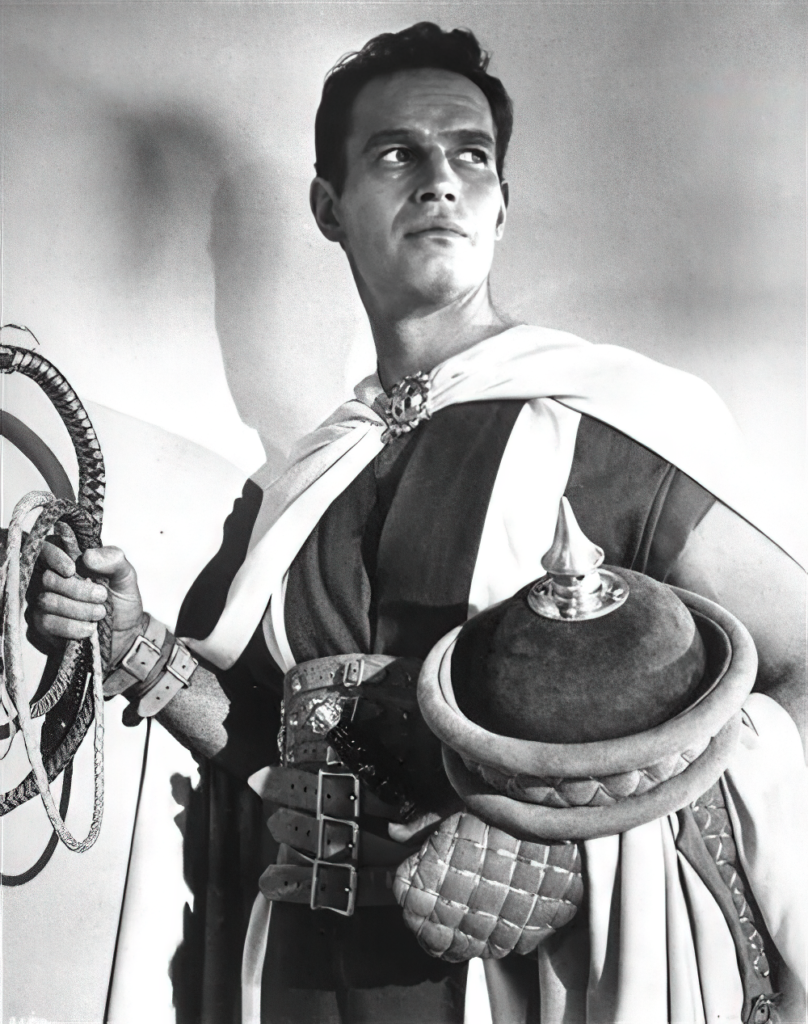
Charlton Heston’s on-screen accomplishments include:
- Academy Award for Best Actor for his role in Ben-Hur (1959).
- Iconic portrayal of Moses in The Ten Commandments (1956).
- Starred in Planet of the Apes (1968), a sci-fi classic.
- Lead role in El Cid (1961), a historical epic.
- Played historical figures like Michelangelo in The Agony and the Ecstasy (1965) and Thomas Jefferson in The Patriots (1963).
- Known for action-packed roles in The Omega Man (1971) and Soylent Green (1973).
- Lead role in The Greatest Show on Earth (1952), which won the Academy Award for Best Picture.
- Played John the Baptist in The Greatest Story Ever Told (1965)
- Portrayed the title character in Khartoum (1966), a historical war film
- Starred in Antony and Cleopatra (1972), a film adaptation he also directed.
Heston’s military background added a layer of authenticity to his performances, particularly in roles that required strength, leadership, and moral conviction. His experiences during the war gave him a deep understanding of the complexities of heroism, which he brought to his iconic portrayals of historical and fictional figures alike.
Charlton Heston’s Advocacy Work and Legacy
Charlton Heston’s sense of duty and patriotism extended beyond his military service and acting career. Throughout his life, he was an outspoken advocate for various causes, including civil rights and the Second Amendment. Heston’s leadership in the public arena was marked by his willingness to stand up for what he believed in, even when it was not popular.
In the 1960s, Heston was an active supporter of the civil rights movement, participating in the 1963 March on Washington and standing alongside Dr. Martin Luther King Jr. in the fight for equality. His commitment to justice and equality was a reflection of the values he had come to cherish during his time in the military.
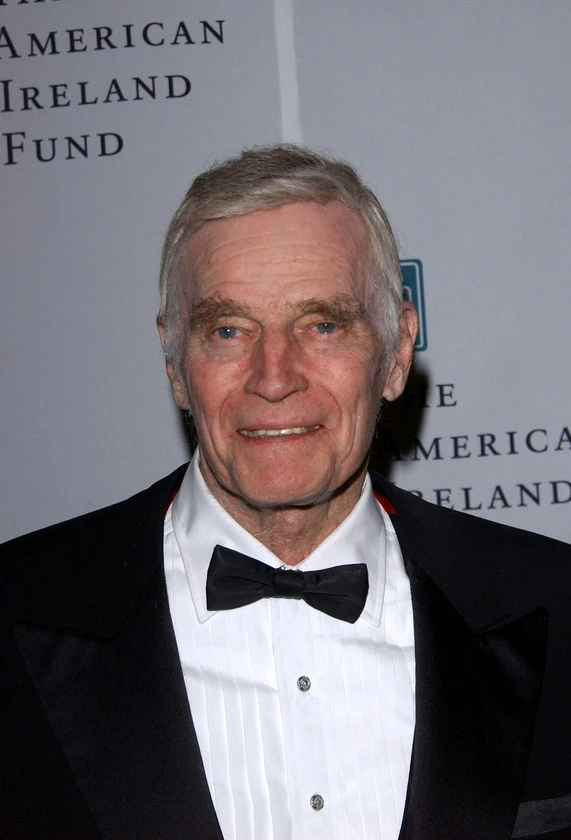
Later in life, Heston became known for his role as president of the National Rifle Association (NRA), where he advocated for gun rights and the protection of the Second Amendment. His leadership within the NRA was driven by his belief in individual freedoms and the principles enshrined in the U.S. Constitution. Charlton Heston’s “Cold Dead Hands” speech at the 2000 NRA convention became one of his most famous moments, symbolizing his strong defense of the Second Amendment. In this powerful address, he famously said, “When ordinary hands can possess such an extraordinary instrument, that symbolizes the full measure of human dignity and liberty. That’s why those five words issue an irresistible call to us all, and we muster,” and then raised a rifle above his head, declaring that gun rights would only be taken from him “from my cold, dead hands.”
Heston died in 2008 at age 84 at his home in Los Angeles. He had been diagnosed with symptoms of Alzheimer’s disease six years earlier. Heston’s legacy is one of strength, resilience, and unwavering dedication to his country and the values he held dear. His contributions to both the military and the entertainment industry have left an indelible mark on American culture. As we remember Charlton Heston, it is important to honor not only his achievements on screen but also his contributions as a serviceman and advocate.
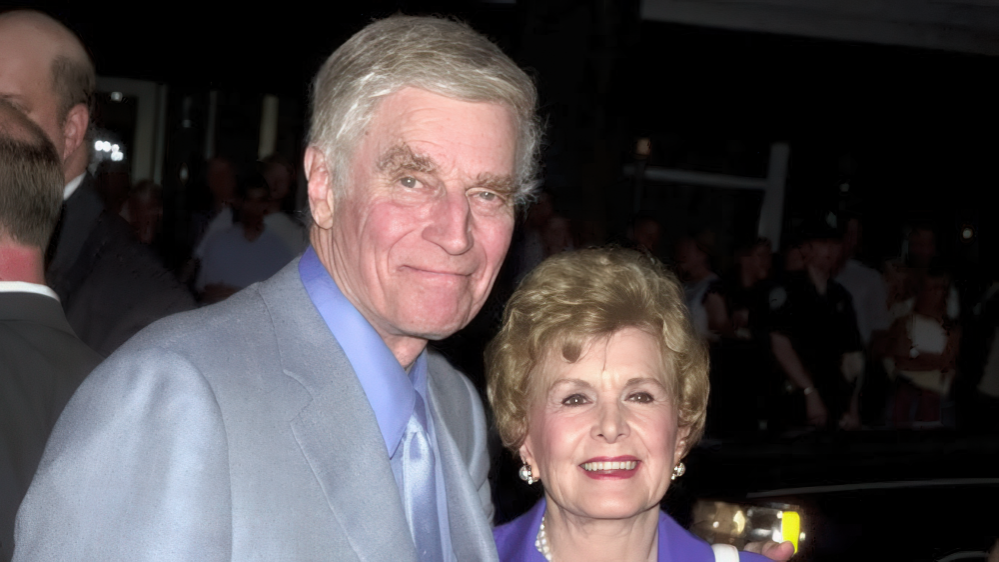
At TogetherWeServed, we celebrate the legacy of Charlton Heston and all those who have served their country with honor and distinction. Their stories are a vital part of our shared history, and it is through remembering their service that we keep the spirit of duty and patriotism alive for future generations.
Learn About Other Famous Veterans On The TogetherWeServed.com Blog
If you enjoyed reading about Charlton Heston’s military service, please browse the stories of other celebrities who served on our blog. You will also find military book reviews, veterans’ service reflections, famous military units and more on the TogetherWeServed.com blog. If you are a veteran, find your military buddies, view historic boot camp photos, build a printable military service plaque, and more on TogetherWeServed.com today.
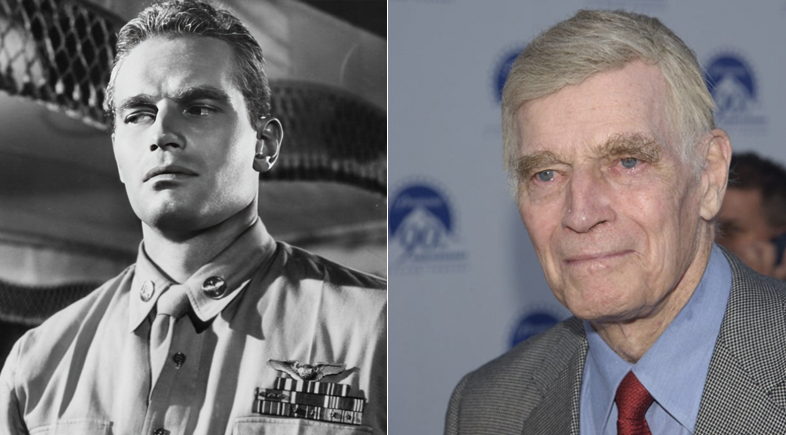
0 Comments